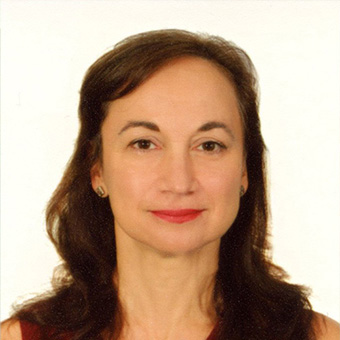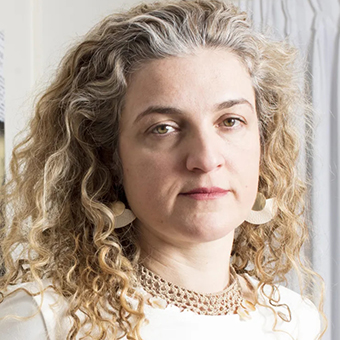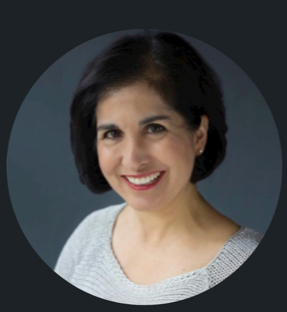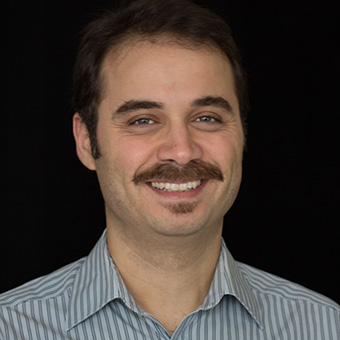Neighbors in Memory: The Entangled Legacy of the Armenian Genocide
Panel Participants

Gonca Sönmez-Poole has been a member of the Boston media community since 1983, producing stories for the Chronicle news magazine at Boston’s WCVB-TV until 2007. After more than a decade of full-time TV work, she branched out into international affairs through her studies at the Fletcher School of Law & Diplomacy at Tufts University. She is the writer and director of the documentary “Urban Nutcracker: The Anatomy of a Ballet” that has been airing on Public TV channels over the past ten years.
Over the past decade, Sönmez-Poole has been involved with the Turkish and Armenian communities in and around Boston and has been writing about the subject of the Armenian Genocide. Sönmez-Poole is the founder of TAWA (The Turkish-Armenian Women’s Alliance), a grassroots alliance of women who met regularly between 2012 and 2014 for the purpose of dialogue and common purpose. Her most recent effort is the founding of the website called Neighbors in Memory and the production of a series of video profiles related to the legacy of the Armenian Genocide.
Sönmez-Poole holds a BA in mass communication from Emerson College, an MS in broadcasting and film from Boston University and a mid-career MA from the Fletcher School of Law & Diplomacy, where she studied international human rights, minorities and methods in mediation and conflict resolution.

Lerna Ekmekcioglu is a historian of the modern Middle East and the Director of the Women and Gender Studies Program at Massachusetts Institute of Technology. She specializes on Turkish and Armenian lands in the 19th and 20th centuries. Her work focuses on minority-majority relationships and the ways in which gendered analytical lenses help us better understand coexistence and conflict, including genocide and post-genocide. She is also interested in the history of non-Western feminisms, including Armenian, Turkish, Kurdish, Jewish, and Greek women’s movements. She teaches courses on cultural pluralism, women and war, global revolutions, and women and gender in the Middle East and North Africa. Prof. Ekmekcioglu is the winner of the 2016 Levitan Teaching Award in the School of Humanities, Arts, and Social Sciences (SHASS) which recognizes SHASS teachers “who make a profound difference in the educational experience of MIT undergraduate and graduate students.”
Her first book, which came out in 2006, was a co-edited volume in Turkish titled Bir Adalet Feryadı, Osmanlı’dan Cumhuriyet’e Beş Ermeni Feminist Yazar (1862-1933) [A Cry for Justice: Five Armenian Feminist Writers from the Ottoman Empire to the Turkish Republic (1862-1933)] . Her first monograph, Recovering Armenia: The Limits of Beloning in Post-Genocide Turkey, came out of Stanford University Press in early 2016. The book offers the first in-depth study of the aftermath of the 1915 Armenian Genocide and the Armenians who remained in Turkey.
Dr. Ekmekcioglu is currently collaborating with Dr. Melissa Bilal (UCLA) in compiling a critical anthology of Western Armenian feminism. Titled “Feminism in Armenian: An Interpretive Anthology” this book focuses on twelve Istanbul-born feminists who were active in various parts of the world from 1860s to 1960s. The project also has a digital humanities component, a documentary website that archives these feminists’ published and unpublished work over the years. Ekmekcioglu also written on the demands of Armenians at the 1922-23 Lausanne Conference. She recently helped publish a book in Western Armenian. Vartouhie Calantar(-Nalbandian)’s WWI prison memoirs are
Prof. Ekmekcioglu organizes the Bi-annual McMillan-Stewart Lecture Series on women in the developing world.

Laura Bilazarian-Purutyan is a second generation Armenian American whose life is grounded in her close relationships with her grandmothers. Both were orphans of the Armenian Genocide. Formerly a high school teacher and youth workforce development specialist, Laura is Workforce Development & Community Relations Specialist with the Christa Corrigan McAuliffe Center for Integrated Science Learning and MetroWest STEM Education Network (MSEN). She works on strengthening access to high-quality, project-based STEM education through team collaborations among school districts, community organizations, government, and industry.
Laura is grateful for friendships and insights gained through her participation in TAWA (Turkish Armenian Women’s Alliance), an unaffiliated two-year series of dialogues that took place between 2012 and 2014. Working with complex issues, Laura serves as a “both-and" bridge. In this role, she listens, considers multiple perspectives, frames common ground, supports contemplative dialogue, and stands for restorative justice.

Apo Torosyan is an Istanbul-born artist who emigrated to the U.S. in 1968, the same year he graduated from the Academy of Fine Arts (B.F.A./M.F.A.) in Istanbul. After establishing a successful visual design company, he sold his business in 1986, deciding to dedicate his time to his art. Since then, Torosyan has had many solo and group shows all over the U.S. and Europe, including Turkey, Greece, Spain, France, and Armenia. His artwork is in the permanent collections of the Museum of Modern Art at Tonneins, France; the Armenian Library & Museum of America in Watertown, MA; the Ararat Eskijian Museum in Los Angeles, CA; the Armenian Diocese in Burbank, CA; A.G.B.U. Manoogian Collection in Montreal, Canada; Sacred Heart University in Fairfield, CT; Flaten Art Museum in Northfield, MN and the Florida Holocaust Museum in St.Petersburg, FL. Torosyan was an active member of the Boston Printmakers and the International Association of Genocide Scholars.

Ohannes Kılıçdağı is an academician and a columnist for Agos, a bilingual Armenian weekly published in Istanbul. He holds a double major in sociology and political science from Istanbul’s Boğaziçi University. He received his PhD from the same university with a dissertation titled “Socio-political Reflections and Expectations of the Ottoman Armenians after the 1908 Revolution: Between Hope and Despair.”
Kılıçdağı was a research fellow at the Near Eastern Studies of University of Michigan, Ann Arbor in 2012-2013 and a lecturer on the social and political history of the late Ottoman Empire and modern Turkey at Istanbul’s Bilgi University between 2003 and 2017. He was a post-doctoral fellow at the Center for Middle Eastern Studies at Harvard University from 2017 to 2019 and a research affiliate at MIT’s history department in 2019-2020. He was appointed as the Nikit and Eleanora Ordianian Visiting Professor at Middle Eastern, South Asian and African Studies (MESAAS) at Columbia University in spring 2020; the Kazan Visiting Professor in Armenian Studies at California State University, Fresno in fall 2020 and the Dumanian Visiting Professor of Near Eastern Languages and Civilizations at University of Chicago in spring 2022.
Kılıçdağı’s areas of special interest are the history of non-Muslims in the Ottoman Empire and Turkey; intercommunal relations in multi-ethnoreligious societies; citizenship and minorities; the history of citizenship and military service; historical sociology and the philosophy of history.